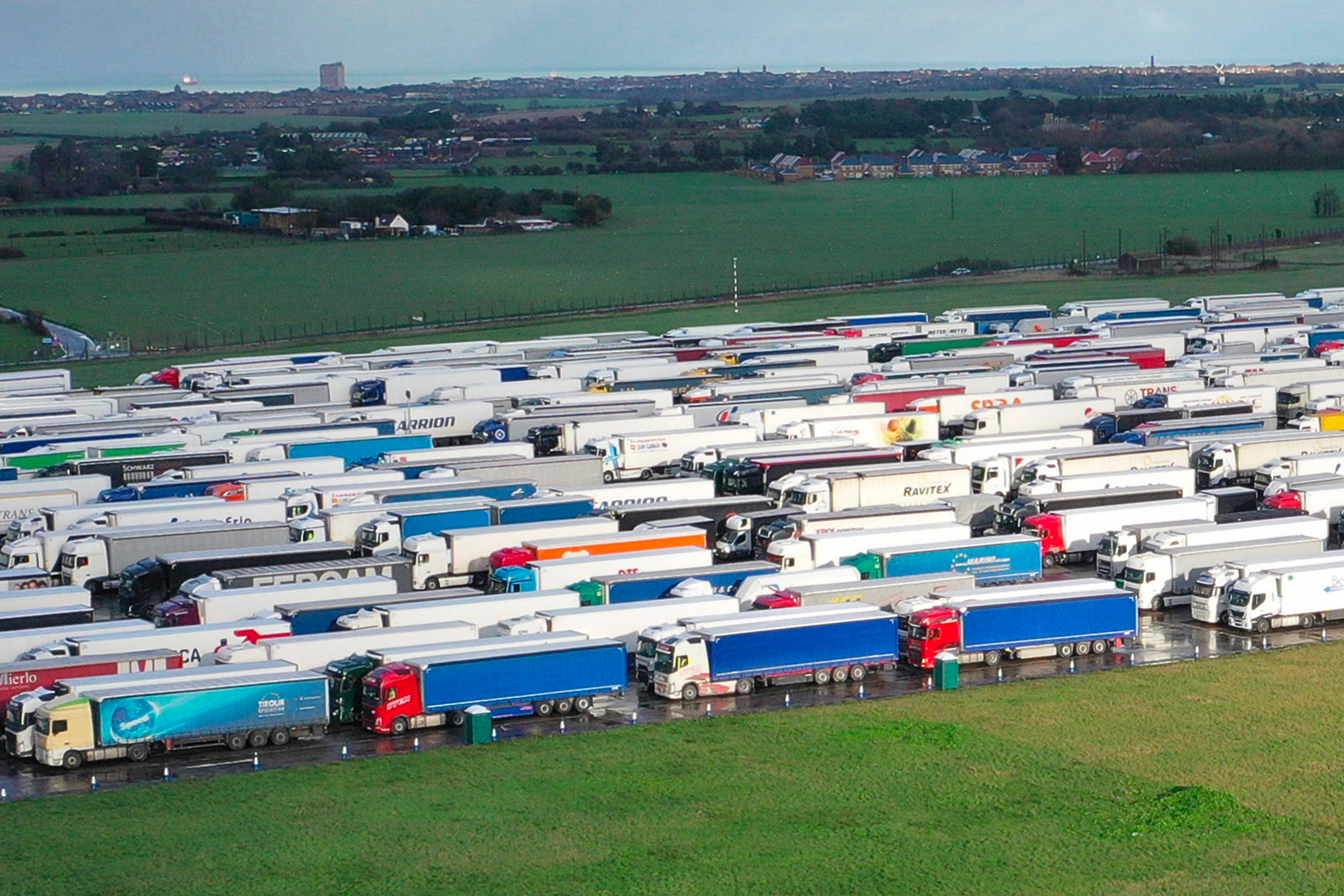The Independent's journalism is supported by our readers. When you purchase through links on our site, we may earn commission.
What does this deal with the European Union mean for the UK economy?
Analysis: A post-Brexit free trade agreement between Europe and the UK has finally been hammered out. But what does it mean for the UK economy? Ben Chu explains

To estimate the economic value of this eleventh-hour free trade deal between the UK government and the European Union, we need to consider what would have happened in its absence.
Ignore Boris Johnson’s propaganda about “prospering mightily” with an “Australian-style deal”.
Whatever the prime minister says, a failure to reach a free trade deal with the European Union would not have been “more than satisfactory” for UK businesses.
The costs of a no-deal Brexit in the middle of the chaos of the coronavirus pandemic would not have been “lower than they have ever been”.
Make no mistake: a Brexit deal matters a lot for the UK economy in the immediate term.
It means a host of UK industries – from farmers to fishermen to car manufacturers – will not face tariffs, some punitively high, on their copious exports to the European Union from the end of the month.
Yes, disruption is still coming on 31 December, as hauliers have been arguing for months, when we, in effect, leave the customs union and single market.
From that instant, the UK will officially be a “third country” to the EU – and that status brings checks and paperwork for traders at the border, just as surely as Santa brings presents when he sets out on his sleigh on Christmas Eve.
But with a free trade deal, the UK and continental authorities are much more likely to cooperate on smoothing out these new frictions.
That means less likelihood of even larger queues of lorries in Kent, heading into the Channel Tunnel and the ferries, than we have seen this week because of the French ban on accompanied freight. And that means less chance of continental hauliers avoiding Britain and disruption, as a result, to the supply of foods and medicines into the UK.
A deal will avoid what many City of London analysts had been assuming would be a very dark day for sterling, which, some say, could have slumped to parity with the euro.
Such a currency collapse would have pushed up UK import prices, just as the slump in sterling on the night of the referendum did.
A deal will also spare British shoppers from substantial jumps in the prices of groceries from Europe that they could have otherwise expected if the UK had imposed its new tariff regime on all those tens of billions of pounds of imports from the EU.
The relief and goodwill resulting from a free trade deal mean cooperation on vexed and important questions on data transfers and financial regulations – vital for our cross-border services firms – is also much more likely.
How much monetary damage would a no-deal Brexit have added up to?
The Office for Budget Responsibility estimated a no-deal outcome would have knocked 2 per cent off UK GDP growth in 2021, or around £40bn.
That would have significantly deepened the likely recession resulting from a return to lockdown.
Unemployment, according to the best guess of the OBR, would have spiked higher (by around 300,000) than it is already set too. Public borrowing would be up by a further £12bn.
A free trade deal really does matter.
Constitutional damage has been avoided too. A free trade deal does not mean the future of the United Kingdom is secure – but it’s sobering to contemplate what a no-deal Brexit would have meant for the union, for the long-term place of Scotland and Northern Ireland in it.
Yet a free trade deal with the EU, it is vital to remember, does not mean economic pain has been avoided in the longer term.
This is very far from the status quo. What we are getting is what four years ago would have been classified as a granite-hard Brexit – and this will hit the UK economy hard in the medium and long term.
Leaving the EU’s single market and the customs union, according to every credible piece of analysis, creates significantly higher trade barriers with the EU, easily our largest trading partner, and reduces trade far more than otherwise.
This new arrangement will make it harder for our services firms – a big and growing part of our exports – to trade with the EU.
Modelling suggests lower growth as a result, with the average of studies indicating a hit to GDP of around 4 per cent.
In today’s money that’s a hit to our national economic activity of around £80bn, or around £1,200 for every person alive in the UK.
So as British businesses and households breathe a sigh of relief at an economic no-deal disaster averted it’s also important to note how success has been defined inexorably downwards over the past two years.
This is – it bears repeating – the thinnest free trade deal with the European Union that would have been imaginable on the morning after the Brexit referendum on 24 June 2016.
And it will do serious long-term damage to the UK economy relative to other forms of Brexit that might have been adopted.
If it feels like a victory that’s really an indication of how recklessly close to the cliff edge politicians dragged the economy and our living standards with it.
Subscribe to Independent Premium to bookmark this article
Want to bookmark your favourite articles and stories to read or reference later? Start your Independent Premium subscription today.

Join our commenting forum
Join thought-provoking conversations, follow other Independent readers and see their replies